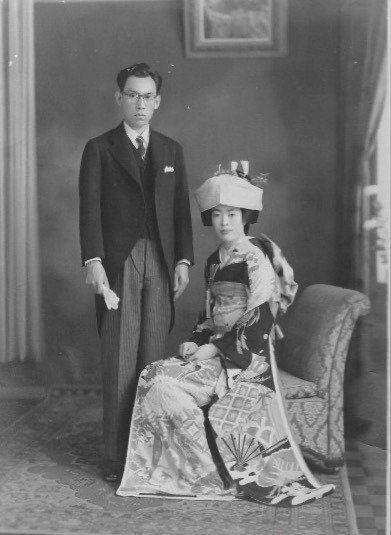
A Story of My Roots and Routes--Part 1 "FAMILY HISTORY"
By Atsushi Furuiye
INTRODUCTION
“A Third Culture Kid (TCK) is a person who has spent a significant part of his or her developmental years outside the parents’ culture. The TCK builds relationships to all of the cultures, while not having full ownership in any. Although elements from each culture are assimilated into the TCK’s life experience, the sense of belonging is in relationship to others of similar background.”
by David C. Pollock and Ruth E. Van Reken, 1999
By definition, TCKs belong everywhere and nowhere. We also often say our home is everywhere and nowhere. I am one of them. I used to think that I had wings but no roots. “Where are you from?” is one of the most difficult questions for TCKs. “Where is your home?” is as mindboggling. But we do try to find answers for these questions, if only to satisfy our own need to know who we are. It often becomes a lifelong journey.
This is a story of my personal quest for “HOME.”
FAMILY HISTORY
My father was born in 1931. His family was rooted in a rural village in Kumamoto prefecture in the heartland of Kyushu, the western island of Japan. I had some chances to visit the place with my father, but the first and only time I went there on my own was when I was 15 years old. The directions father gave me were to take an inter-city bus from the terminal in Kumamoto City all the way to the other end and get a cab there, let the driver guide me. I did exactly that. As we approached the village, I noticed that our family name which is quite rare elsewhere could be found all over; on the billboards of the small businesses, on the nameplates of the houses that lined the streets.
The driver stopped the car in front of a small post office beside a bridge across a stream. He found an old lady on the roadside and asked her to show him the rest of the way. To my surprise, he could not understand what she was telling him. The driver was obviously a local, they seemed to be speaking the same dialect, but their accents were so different! The driver asked another person to take me to where my relatives lived.
It turned out that the bridge was the entrance to the village. During my stay there, people took me through the backyard and up the hill behind the main house. There was a little tomb site for our ancestors. Some stones had inscriptions so old they were undecipherable. They could easily date back several hundred years.
By early 1945, my father’s family was living in Kure City in Hiroshima prefecture. My grandfather was an obstetrician/gynecologist and ran his hospital there. Kure was home to a major base for the Imperial Navy with its shipyard and port, so my grandfather helped give birth to many babies for the officers’ families. He also held a high rank as a Navy surgeon. He was killed in a bombing of Kure. I heard that a bomb came flying in straight to the shelter which was dug horizontally on a hillside. My grandmother, along with her three boys (the youngest was my father,) moved back to Kumamoto. This was before the dropping of the A-bomb on Hiroshima.
After the war, my father attended the number one boy’s high school in Kumamoto City, and went on to graduate from the University of Kumamoto with a degree in chemistry.
My mother was born in 1933 as a daughter of a stock exchange broker in Kumamoto City. She grew up watching lucky men who brought her gifts suddenly go broke and come begging for petty money. She developed a lifelong dislike for uninsured investments. She went to the number one girl’s high school in the city, somehow met my father, fell in love, and got engaged. While waiting for my father to finish school, she went to Tokyo to attend a sewing college. One of her instructors found her so talented that mother was invited to join the atelier to become a full-fledged designer, but mother rejected the offer and went back to father to get married. Thanks to that decision, I am here today.

This story was originally written in English for a fellow TCK who doesn’t read Japanese. I revised and rewrote it for general readers in Japanese, and the two are not exact translations of each other. You can read this part of the story in Japanese here.
いいなと思ったら応援しよう!

